Lasting Impressions – The Festival “Wonderful Days” through the Eyes of our Youth
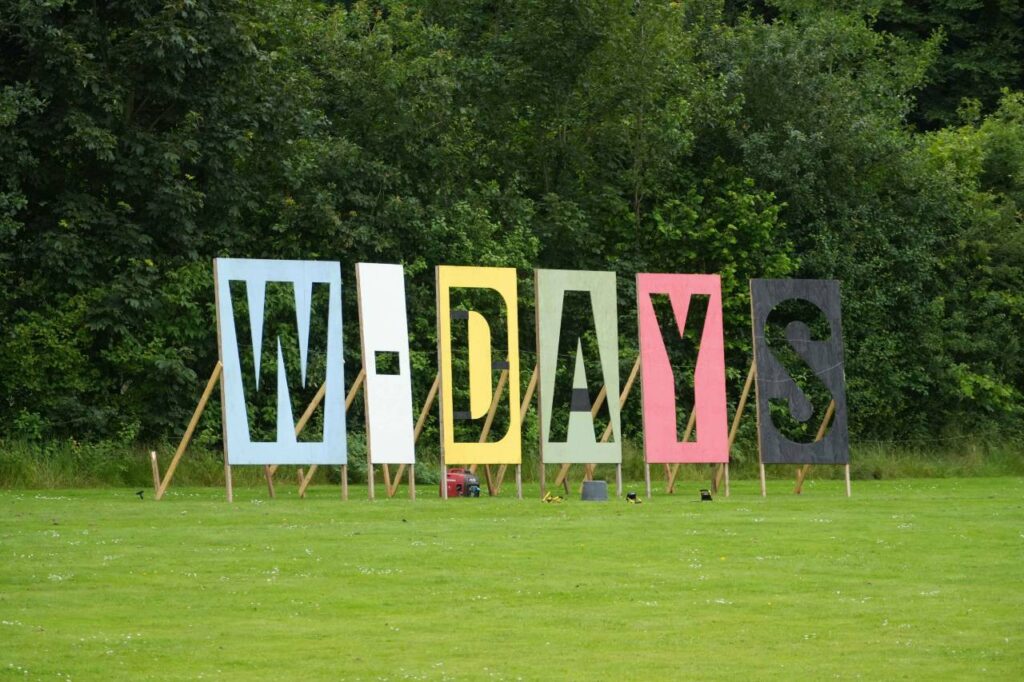
Latest News Lasting Impressions – The Festival “Wonderful Days” through the Eyes of our Youth In July 2025, eight representatives from our YMCA – two leaders and six young people aged 13 to 18 – took part in the unforgettable youth festival Wonderful Days in Denmark. Organized every two years by YMCA Denmark, this unique camp-festival offers an outdoor adventure filled with concerts, workshops, sports, moments for personal reflection, and countless new friendships. Thanks to the support of the Erasmus+ programme, our participants had the opportunity to join youth from several other countries in this inspiring event. Wonderful Days is more than just a festival – it’s a shared experience that inspires, connects, and empowers young people through non-formal education, volunteering, and joyful engagement. Our team returned home full of ideas, skills, and motivation, ready to bring a piece of the festival spirit into our local community. Below, we share their reflections – honest, vivid, and full of gratitude. MihailMy first thoughts when I found out about the festival in Denmark were that this would be unforgettable. I think we all had certain expectations, but what I expected became a reality – a paradise for young people. I felt accepted and was very happy that everyone was friendly and communicative. The international connection aspect was very pleasant – we shared our cultures and games. I learned to be more communicative and to enjoy nature. The activities we did around the campfire had a positive impact – I learned how to make wooden utensils and various sculptures. Overall, I would describe the experience as unforgettable, extremely fun and unforgettable for anyone who attends in the future. TeonaBecause we do not have such events here, my first thought was that this was something impossible for me. However, with a bit of hope, I still applied. I felt excited with a small dose of fear about whether I would manage, but at that place, nothing is impossible – everyone gives you hope and strength that you can do anything. I gained new experiences because it was my first time camping. I also got to know myself better. After each activity, I felt stronger than I believed I was. Primarily, I learned to live more simply than I do in everyday life. I learned to be more resourceful, to know my worth, and that people care about my opinion. I would recommend this festival to many young people because you can learn things that help in everyday life and personal growth. StefanijaBefore the trip, I expected something modest, but it turned out to be even better, and the place was wonderful, clean and organized. During all the activities, I felt great and accepted by everyone. Taking part in this festival brought me many benefits – I gained new skills, improved communication and discipline. Before, I used to hesitate to join new activities. Now I’m more open to challenges and have made new friendships, which also means a lot. I would definitely recommend this type of educational activity. You learn how to work in a team, gain knowledge, and develop discipline – which is very important. The activity was excellently organized and left a great impression – I want to tell everyone with such an opportunity to go for it. EmilijaFrom the moment I found out about the festival, I was thrilled and excited for the adventure because I hadn’t had such an experience before. At the festival, I learned about teamwork, how to become more responsible and developed other skills like creativity and resilience in the face of challenges. I learned things I will use in everyday life, like flexibility, problem-solving, and finding creative solutions. I also learned how to make the most of the day and feel fulfilled. My recommendation: I don’t think I’ll stop telling everyone about this for the next six months, because it was such an unforgettable and super fun experience. I recommend everyone to go if they get the chance – no one teaches you the things you learn at camp: friendship, skills, experience, and memories. Overall experience: I would describe it in one word – unbelievable. JovanaHonestly, I didn’t think I’d be lucky enough to be part of such an adventure and had no expectations. But when I found out I would participate, I knew I’d have a great time, meet new friends, and learn something new. The activities I liked most were those we could do in our free time – like weaving, sewing, working with clay, and making bracelets. Participating in such an organized camp festival meant you truly have a chance to learn many new things, find yourself in a different environment, and meet different people. The things you learn at these camps are applicable and useful in everyday life. I recommend these camp activities, friendships, memories, and experiences to every young person because they begin to become more aware, confident, make new friendships and become stronger. ManuelaI couldn’t fully imagine what a camp festival would be like because it was my first time participating in something like that. The fact that I already knew everyone in my group meant that my only expectation was to have fun! Each game was new to us and designed to be engaging. I enjoyed every single activity offered to us – even just having a simple conversation with one of the internationals. All of it was an opportunity to grow within myself. In the 21st century, everyone thinks they need to look perfect, act perfectly, have no flaws, be the best, compete with each other and focus most on their social media. However, at camp we remember the real standards – what really matters. Kindness, friendship, humanity, loyalty and LOVE! We believe that moments like these at Wonderful Days leave a lasting impact and encourage young people to be more active, confident, and open to the world around them. Gordana – a group leaderWhen I first heard about the summer camp in Denmark, I felt excitement and
More Than a Camp: Stories That Stay With You
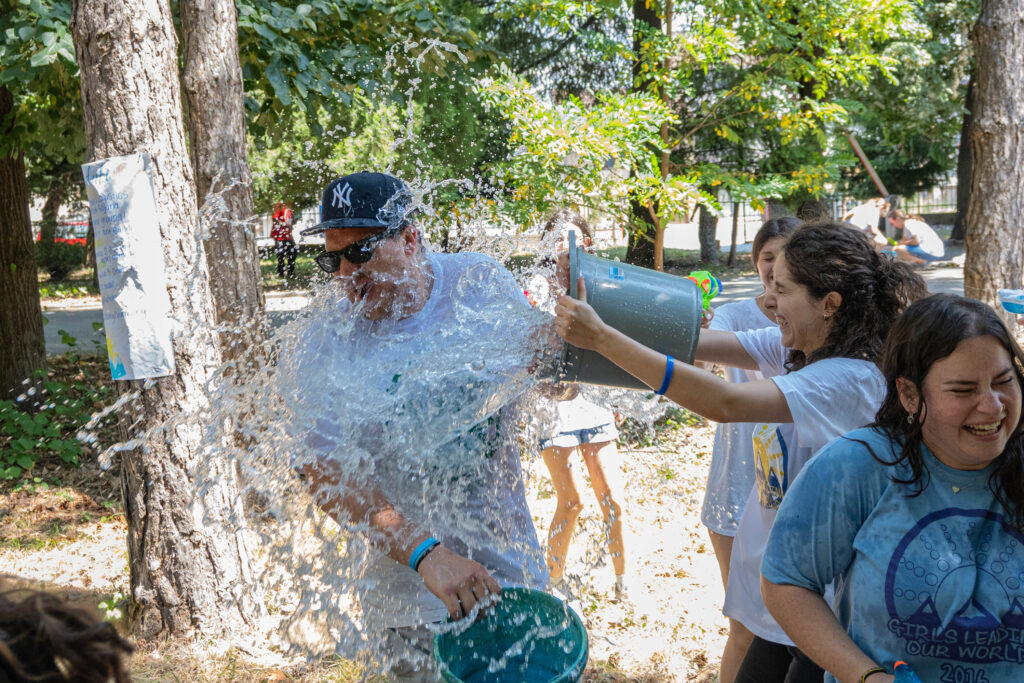
Latest News More Than a Camp: Stories That Stay With You Campers’ Testimonials This summer, a group of girls from different schools and backgrounds came together at GLOW Camp — and left with more than just great memories. What started as a fun summer opportunity quickly turned into a life-changing experience, full of personal growth, new friendships, laughter, and learning that reached far beyond the campgrounds. Mihaela, a 15-year-old medical student, the camp became a place to build self-confidence and learn how to better communicate with others. “Everything we learned is something we can use in everyday life — and the friendships still remain.” Ema, 14, arrived nervous but hopeful — and left with a full heart. She described the camp as fun, educational, and deeply empowering. “I learned to speak in front of others without being shy,” she said. “I got better at working in a team, made friends, and became more confident.” Ana Marija, also 15, felt that these activities should be experienced by all teenagers — even adults. The camp taught her practical and emotional lessons that, as she said, “changed my daily life.” She believes this kind of camp is especially important for younger generations to disconnect from their phones and connect more with people. Emilija, 16, called her GLOW experience “amazing.” She found not just joy in the moment, but tools for life — learning the value of resilience, leadership, and how true strength lies in unity and support. “No one teaches you these things the way camp does,” she said. “The friendships, the skills, the memories — they stay with you.” Angela, 14, embraced every activity — from setting up a tent for the first time to learning how to express herself with more confidence. “Since camp, I’ve started taking better care of myself and speaking up more,” she shared. “It helped me open up and work as a team.” And for Jana, 15, the magic was in the energy. “It was fun, educational, and helped me be more open,” she said. She especially enjoyed the water games, teamwork, and the feeling of learning through playing. These girls came to GLOW Camp looking for something new. They left with new skills, new friendships, and a stronger sense of who they are — and who they can become. Staff Testimonials “I really appreciate being part of the first time bringing back to the camp. It is only up from here. Thank you so much!” — Lizzie Bradshaw, Peace Corps Volunteer “Particularly with GLOW camp, there was enthusiasm and excitement to participate. It was clear that meaningful bonds were established. The counselors worked really well together, and there are clear opportunities to grow the program next year!” — Shayna Meltzer, Peace Corps Volunteer “This was a challenge for me, because it was the first time I was directly involved in planning outdoor camps, working with a team from the USA who have rich and real-world experience behind them. Of course, there is always room for improvement, and I look forward to more such or similar activities in the future.” — Natasa Darkov, YMCA staff “The girls had an amazing time, which is the main goal. I’m really happy the camps are happening again, and I cannot wait to see how I can contribute to getting them back to their former glory! Godspeed!” — Roberta Petrovska, Local Volunteer Campers’ Survey After participating in the camp, many girls feel significantly more confident in their decision-making abilities (72% high level of agreement) and committed to fulfilling their obligations (67%). Most participants stated that they are more aware and proactive in taking care of their physical and emotional health (78%), as well as having a significant increase in self-confidence, security, and independence (67%). Many of them feel more effective in teamwork (78%), their ability to cooperate with others has improved (78%), and they are also more willing to put the goals of the group before their own (72%). Also, 72% value and consider different opinions more and understand group dynamics better. Participants showed an increased interest in exploring new experiences (89%), and a great willingness to get out of their comfort zone and try new things (85%). They feel more confident when meeting and interacting with new people (79%) and more effective in working in a group (85%). Parents’ Survey To better understand the impact of this year’s GLOW Camp, we asked the parents of participants to share their impressions. Their responses showed not only strong satisfaction with the experience but also visible changes in their daughters after the camp. All parents agreed that the camp was useful for their daughters — a clear sign that GLOW continues to offer meaningful content and a supportive environment. When it came to the overall camp experience, a big majority of parents rated it as excellent, with the remaining saying it was above average or average. The activities also received high praise with most of them describing them as excellent and a few as very good. One of the most encouraging results came from the question about changes in the children after the camp. Most parents said they saw a positive difference — their daughters came home happier, more confident, more creative, and more socially engaged. A few noted they were smiling more, initiating conversations, or expressing themselves in new ways, and a few were not sure yet or saw no noticeable change. Most parents felt the camp met their expectations and when asked how GLOW compared to other camps in the country, half said it was among the best, while others did not have a comparison point. Parents described GLOW as a safe space where girls could express themselves, try new things, and grow – emotionally, socially, and creatively. Many expressed gratitude that such a program exists and hope to see it continue in the years to come.
Summer Reimagined: YMCA Camps Returned with Purpose and Passion
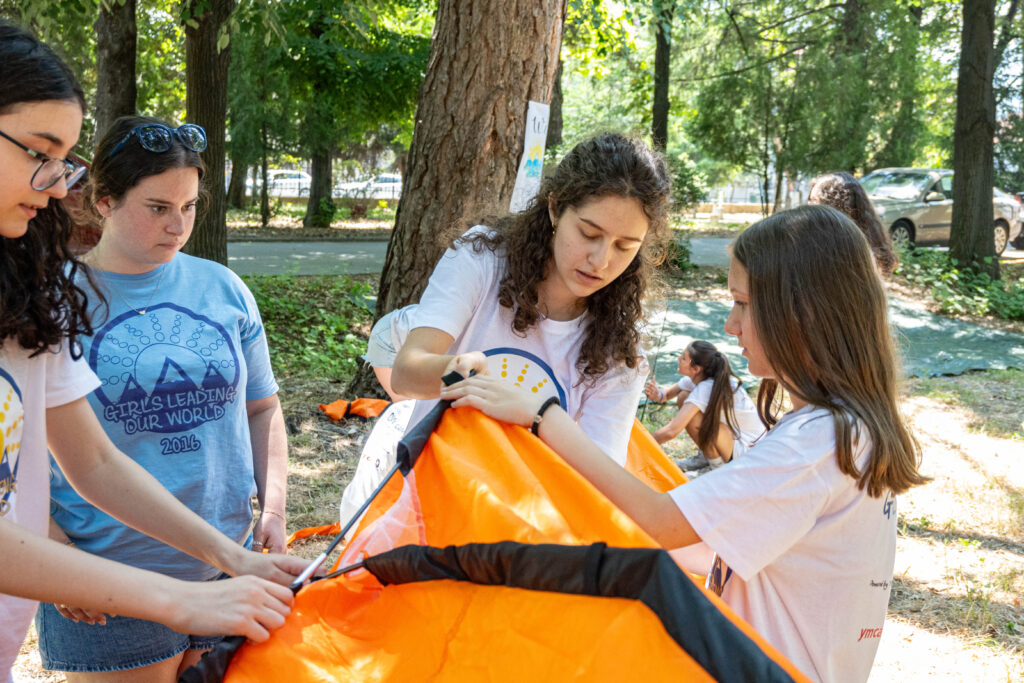
Latest News Summer Reimagined: YMCA Camps Returned with Purpose and Passion The YMCA proudly revived its tradition of youth camps, adapting to the times with vibrant day camps focused on personal growth, teamwork, and outdoor learning. This year’s camps, part of the Young Men’s Leadership Project (YMLP) and Girls Leading Our World (GLOW), offered young people in grades 8-9 of primary school and 1-3 of secondary school a unique opportunity for summer adventure, learning, and friendship. Reigniting the Spirit of Camp: A Summer of Growth, Leadership & Joy The call for participants invited youth to step away from screens and daily routines, to immerse themselves in nature and in an atmosphere dedicated in investment in leadership, communication, environment and personal growth. “Our camps are a safe, fun, and inspiring environment,” the call emphasized, “where young people become more confident, aware, and prepared for life.” To prepare the space for a smooth and engaging camp, volunteers from the YMCA took part in clean-up actions at the yard of the Faculty of Pedagogy as primary venue for camp activities ensuring a welcoming environment for all participants. An informative session was also held to introduce the camps and spark enthusiasm among interested youth and parents. Growing Leaders, One Day at a Time: YMCA’s YMLP & GLOW Camps The YMLP day camp took place on June 20, focusing on exercises designed to foster personal growth. Activities included a drum circle teaching communication and active listening—a metaphor for harmony and cooperation in everyday life and slackline exercises symbolizing balance, trust, and mutual support. Participants also practiced Qi Gong, an ancient Chinese mindfulness and movement practice, enhancing physical and mental well-being. Energizers, social games and moments of relaxation, setting a meaningful tone for the youth’s journey, complemented these engaging activities. From June 26 to 28, the GLOW camp welcomed an enthusiastic group of girls for a three-day immersive experience. The first two days were held in the serene courtyard of the Faculty of Pedagogy, while the final day was spent amidst the stunning natural beauty of Pelister National Park. Each day began with yoga sessions helping participants ground themselves and connect deeply with their bodies and surroundings. The camp’s core philosophy encouraged learning through experience and teamwork: girls practiced listening, communicating and building trust through a variety of hands-on exercises. Daily team challenges prompted campers to collaborate on strategy and problem-solving, reinforcing essential life skills such as resilience, leadership, and community responsibility. Activities like slacklining tested balance, coordination, and courage teaching lessons about facing fears and relying on others that only a camp environment can truly provide. Afternoons shifted focus from physical to reflective activities, including guided inner-expression sessions through drawing and mindfulness practices. These moments allowed participants to slow down and restore personal well-being in a fast-paced world. Water games, a camp favorite, added fun and spontaneity, creating joyful and unforgettable summer memories. A unique highlight was the community simulation exercise, where girls role-played local stakeholders to debate, identify community problems, and propose solutions—empowering them to understand and participate in decision-making processes that affect their lives and neighborhoods. The Heart of the Camp: Volunteers and Teamwork Behind this program stood a dedicated team. The YMCA team worked closely with local volunteers who contributed to the logistics and marketing as well as the Peace Corps volunteers serving across the country who added the flavor and key ingredient of the American style of camps. They helped in the implementation of the program through multiple exercises, games and camp songs as well as serving as counselors, fostering the teamwork. The camp staff was instrumental in delivering high quality, meaningful programming, but also in fostering a supportive and inspiring atmosphere where every young person could thrive. In Gratitude The YMCA extends its deepest gratitude to the local and Peace Corps volunteers for their dedication and passion, which helped us, reignite the flame of camping for our youth and community. We are so happy to have partners such as the YMCA of the USA, Signs of Hope from Germany and our colleagues from the YMCAs in the Balkans with whom we work on the Head Space project making many of the sessions, equipment, and logistics possible and not only for these day camps, but beyond. We love our donors. Thanks to everyone who believed in us, who share our mission and values in investing in the young people and donating on our crowdfunding campaign making the participation of our youth affordable for everyone. Together, we look forward to continuing this journey of growth, learning, and empowerment for many summers to come.
Students’ Stories from the Peer School for Primary Schools
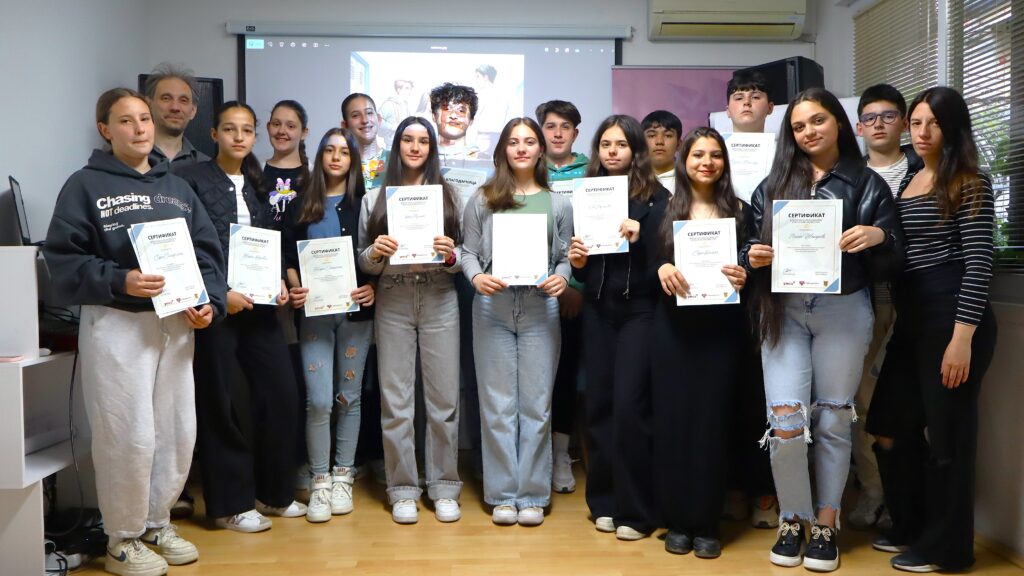
Latest News Students’ Stories from the Peer School for Primary Schools Jovana Georgievska, School Dr. Trifun Panovski From all the topics, “How to deal with peer violence” was my favorite topic to present because we taught the children how to stand up for themselves and to create their self-confidence. In the future, I would like to be a peer educator again because I think this is an important topic that needs to be discussed not only in class, because we see it every day but many do nothing to stop it. Furkan Metliku, School Goce Delchev With the help of the educators and the workshops, I became more confident and prepared to speak in front of others. The topic that interested me the most was psychological violence, because it often happens and is difficult to recognize. During the presentations in front of the students, I was glad that the students listened carefully and showed interest. I believe they learned something important. I would like to be a peer educator again, because this experience helped me to express myself better, to gain self-confidence, and to be a support for others. Mert Rustemov, School Dame Gruev To be a peer educator for the prevention of violence was a great responsibility for me, but also an opportunity to learn something new and to help others. Through the workshops and trainings, I gained self-confidence and felt prepared to speak in front of other students. I consider the topic of peer violence to be very important, because each of us has the right to be safe and respected at school. What was most interesting to me was that through games and discussions, we learned how to recognize different types of violence and how to react properly. I felt most excited when I had to speak in front of other students, but over time I realized that there is no place for shame and fear – it is important to speak openly. I believe that such activities are extremely important and I would like to be a peer educator again. The feeling that I can make a change, even a small one, gives me the strength to continue. Jovan Grozdanovski, School Kole Kaninski When I heard about this workshop, I was nervous about meeting new children, but with each new workshop, I relaxed more and more. Before presenting at my school as a peer educator, I was afraid, but during the presentation, I relaxed. Something that helped me relax was the children who participated in the workshop, because they were open and shared their own experiences with peer violence and how they dealt with it. Jana Lozanche, School St.Cyril and Methodius The workshops helped us to connect with each other, to build team trust, and to feel safe when speaking in front of other students. The most interesting part for me was when the students shared experiences about violence they had survived or witnessed. That was the moment when I truly felt how serious and important this topic is. In those moments, I learned that every child hides a story behind their behavior and that we need to be there for each other. The most difficult part for me was the preparation for the presentation. Although we were prepared and had support, I still felt nervous and wondered if I would say everything as I should. But when I saw that the children were really listening, I felt that we were truly doing something good. I would like to be part of such activities again, even to be a peer educator again.
Peer Education Expands to Primary Schools in Bitola

Latest News Peer Education Expands to Primary Schools in Bitola Following the successful work with high school students in the first semester, the “Peer Education School against Peer Violence” program of YMCA continued into the second semester with a new focus: upper-grade primary school students. Out of the ten primary schools in Bitola, nine joined the initiative by selecting two to three motivated students from 8th and 9th grade to participate in the program. Their enthusiasm reflected the relevance of the topic – peer violence and the need to talk more openly about it. Over a period of two months, participants were divided into two groups and went through four thematic modules, adapted to their age and understanding. The topics mirrored those used with high school students: communication styles, the concept of power and influence, types of violence (physical, psychological, social, and cyber), and non-violent communication as an approach everyone can learn and apply in daily life. Each session offered space for reflection, learning, and building empathy among peers. The creative expression workshop looked a bit different from the one for older students. Instead of guided meditation, younger participants were encouraged to select an image that reminded them of peer violence or its consequences and then represent it through drawing and personal interpretation. The goal was to express their emotions and experiences in a safe and creative way. All sessions were facilitated by a psychologist and youth worker from the YMCA with support from a local artist during the art workshop. After completing the four modules and the art session, the trained students (now peer educators) carried out presentations and workshops in their own classrooms by the end of May 2025. These peer-led activities were well received by school staff, psychologists, and, most importantly, the students themselves. At the end of the school year, a formal certificate ceremony was held to recognize their efforts and completion of the program. The students also proudly exhibited their artwork from the creative session as testimony of their work and dedication. Twenty students completed the program, reaching over 350 peers in primary schools across the city. The experience helped them grow as leaders and advocates for a more supportive and safer school environment. The project “Peer School Against Peer Violence” run by the YMCA is a continuation of the peer education initiative at the Youth Center in Bitola on topics related to mental health, relevant to young people and the Municipality itself. The project is supported by Signs of Hope (CVJM) and the Municipality of Bitola and is implemented in cooperation with nine primary schools in the city.
GLOW club 2025: Girls on the Rise
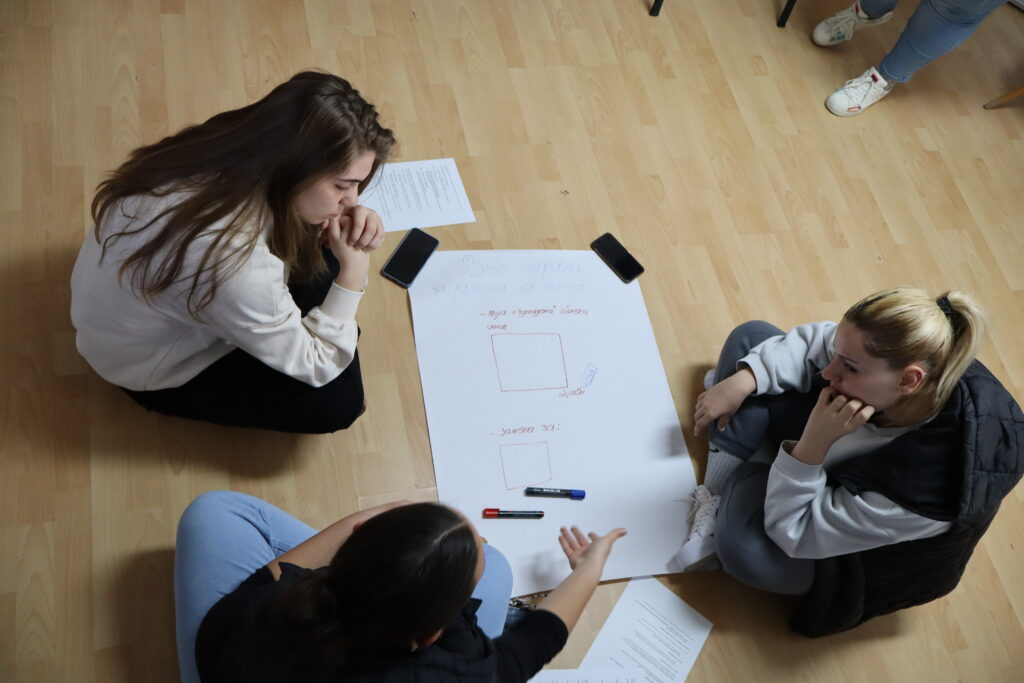
Latest News GLOW club 2025: Girls on the Rise In 2024, we proudly brought GLOW Club back to Bitola after a pandemic pause, reuniting and inspiring a new generation of young girls through workshops on leadership, volunteering, communication, and practical skills. Building on that strong foundation, 2025 takes the journey further with fresh topics, deeper learning, and even more growth opportunities. In 2025, we continued organizing workshops for young girls, focusing on new and previously uncovered topics of interest to them. The seventh session was on the topic of Emotional Intelligence, led by psychologists Biljana Tolevska Naumovska and Orhideja Robevska. This session expanded the girls’ knowledge of the definition of emotional intelligence (EI), its core concepts and its origins. An interactive psychodrama exercise followed, involving all participants, encouraging them to share personal experiences and deepen their understanding of the topic. The session ended with very positive impressions and a collective commitment to invest more in self-development. For the eighth session, we chose yoga. To our great satisfaction, many of the girls were experiencing and benefiting from this type of personal growth activity for the first time. Our yoga instructor was Bojana Artinovska, who generously shared her knowledge during a two-hour introduction to yoga with specific exercises. These exercises were later selected for implementation in our upcoming GLOW camp. The yoga session energized the girls and motivated them to continue practicing at home if they enjoyed the experience. The ninth session, focused on Social Entrepreneurship, was led by an experienced social innovator Anita Gagovska. This was something completely new as a topic and unfamiliar to our girls. Through several icebreaker and scenario-based games, we dove deeper into the topic, with each girl identifying challenges in her environment and exploring potential innovative solutions. The overarching goal of the GLOW club is to increase the involvement of young girls in everyday social life, encouraging them to face challenges and actively engage in solving them in real-life situations. We wrapped up this cycle of the GLOW club with the 10th and final session on the topic of finance literacy led by Jeff Spencer, a Peace Corps volunteer who shared a piece of his rich career experience with us. Throughout his life, he has worked as a manager, professor, financial advisor, and insurance agent. The session covered a wide range of age-appropriate financial topics: the basics of finance, effective money management, types of savings, debt, investments for the future, and more. The girls had the chance to gain new knowledge, ask many questions to a financial expert, and receive firsthand answers. With these ten diverse sessions dedicated to the personal growth and career development of young girls in our city, expanding their horizons, and encouraging them to participate in volunteer activities for greater societal involvement, we laid the foundation for the continued existence and progress of this club. In June this year, we plan to organize a three-day GLOW camp, where these girls, along with new interested participants, will bring back the spirit of past camps. So far, we believe that our GLOW club has had a positive impact on the girls who attended our sessions. Through ten sessions, we covered a wide range of topics to educate and prepare participants for their next steps in life. We eagerly look forward to continuing this wonderful project in the fall of 2025 with hopes of its expansion!
Internship Opportunities at the YMCA: Supporting Young Professionals in Their Growth
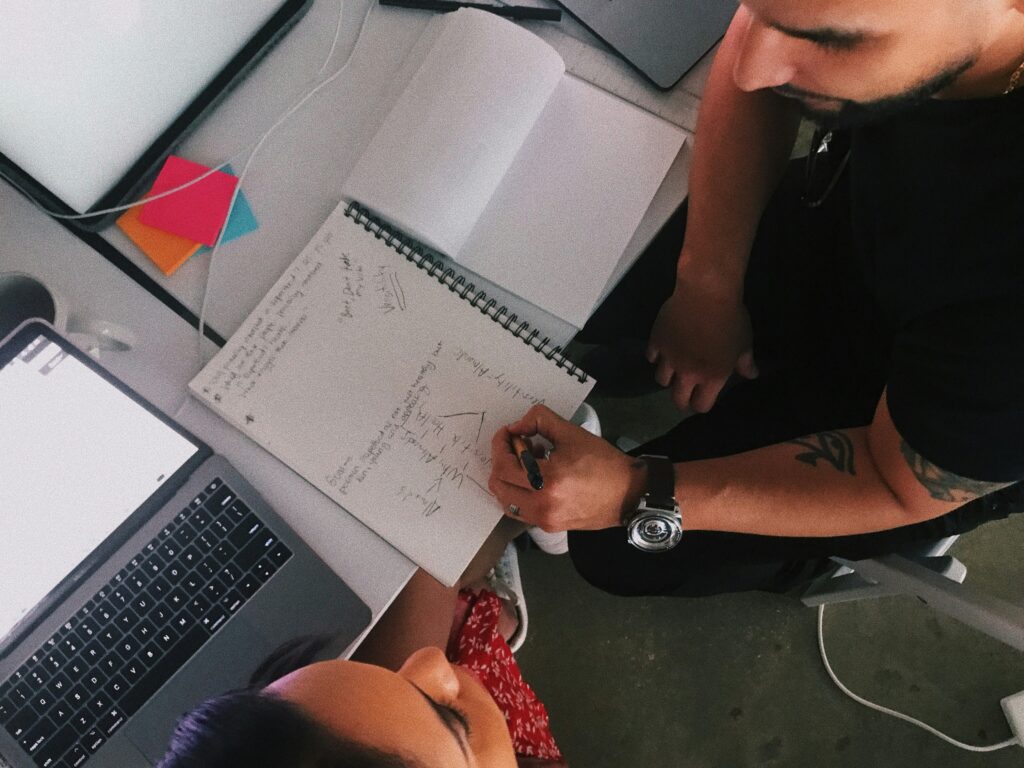
Latest News Internship Opportunities at the YMCA: Supporting Young Professionals in Their Growth Leona I have benefited from the internship in several ways. It has given me the opportunity to apply my academic knowledge in a real-world setting, allowing me to gain hands-on experience in graphic design. Working on diverse projects has helped me develop my creative skills, improve my design process, and become more confident in my abilities. Additionally, the internship has taught me how to work effectively within a team, collaborate with others, and meet deadlines, which are all valuable skills for my future career. It has also provided me with a better understanding of the professional environment and the importance of communication and feedback in achieving quality results. Overall, this experience has significantly contributed to my personal and professional growth. Fidela My name is Fidela and I am a master’s student. During my studies, I had the opportunity to become part of the YMCA as an intern. I would like to share that during my internship in the organization I gained skills and knowledge that contributed greatly to me as a student, as well as to my professional development. Additionally, I would like to highlight my positive experience working with my mentor, as his support and cooperation significantly contributed to the successful completion of my tasks.
Empowering Youth Futures: YMCA’s New Career Guidance Initiative
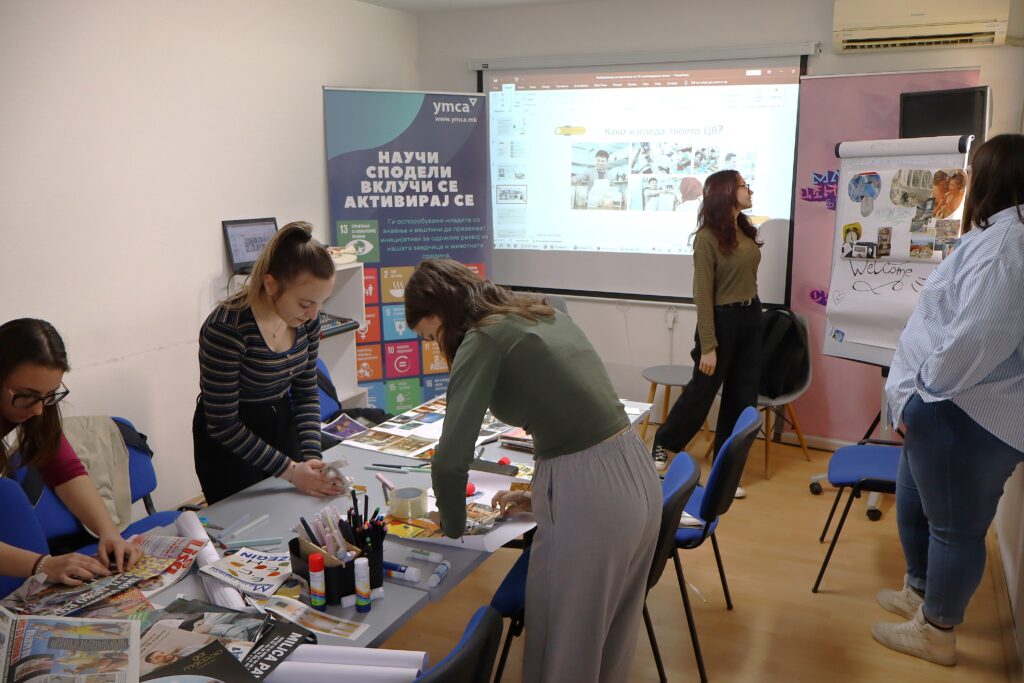
Latest News Empowering Youth Futures: YMCA’s New Career Guidance Initiative This year, the YMCA has taken further steps in providing structured and impactful career guidance for young people. Building on the certification of our youth workers in the ProfillPASS methodology, as well as the methodology for life skills and employability from the project „Empowering Youth through New Opportunities“, YMCA successfully piloted both individual and group career support. Last year we started providing career guidance one-on-one, and this year we have started working with groups of peers with both initiatives aiming to help young people better understand themselves and make informed decisions about their future professional paths. Whether individual or group support, the YMCA approach has two main components: providing development of career (mostly “soft”) skills and providing development of life skills (via various types of character-building activities). Considering the group’s career support, in March this year, within the overall service YMCA provides for the local youth center, we piloted a three-part workshop series for primary and high school students. These sessions were tailored for age-specific youth. Participants explored the importance of personality types and self-awareness as a foundation for choosing a meaningful career. Each workshop focused on: Gaining deeper self-understanding, Setting clear and achievable personal and career goals, Creating a CV and personal portfolio, Building a professional network. Throughout the sessions, young participants also engaged with inspiring real-life people and their career journeys in psychology, music, academia, and civil society. The final workshop allowed them creatively to shape their envisioned career paths, reinforcing the importance of making thoughtful life decisions. Trainers for this three-part workshop series were Prof. Dr. Sašo Kočankovski (Psychologist and Gestalt Therapist) and Anita Gagovska (Social Innovator). These structured activities address the growing need for accessible career counseling. We aim to close the gap between youth potential and market demands by also initiating collaboration with schools, companies, and local educators to create a stronger ecosystem for youth development. With this, the YMCA reaffirms its mission to support young people in their personal and professional development through relevant, evidence-based, and youth-centered initiatives.
Campacity – A Journey of Learning, Connection & Inspiration

Latest News Campacity – A Journey of Learning, Connection & Inspiration From March 27-31, 2025, two staff members from our YMCA had the incredible opportunity to take part in Campacity 2025, a capacity-building conference for YMCA camps across Europe and the USA. This year, the event was held at Camp Perspektiv Fabrik, a scenic campsite located near Brandenburg an der Havel, just west of Berlin, Germany. Campacity is an annual conference hosted in a different country each year, organized by YMCA Europe, YMCA of the USA, and this year YMCA Germany as host. It brought together around 80 camp professionals and youth workers from both continents to exchange knowledge, share experiences, and strengthen the global YMCA camping movement. The conference focused on empowering YMCA camps with innovative, impact-driven approaches—covering key areas such as youth resilience, mental health, conflict transformation, trauma healing, work with refugees and more. It also serves as a space for collaboration and connection between camp leaders committed to working with war-affected youth and families, including displaced communities. Our Experience We spent four unforgettable days immersed in workshops, camp sessions, and informal networking. Each day offers two parallel agendas with sessions on different camp-related topics, ranging from outdoor learning methods to trauma-sensitive programming—all allowing us to split up, cover more ground, and exchange insights afterward. Evenings were reserved for campfire activities, games, and cultural exchange, creating a relaxed and friendly atmosphere that brought participants closer together beyond the formal learning. We returned home enriched with new knowledge, meaningful connections, and a renewed motivation to make our camps more inclusive, healing, and impactful for every young person who joins them. What Participants Loved “We shared experiences and best practices and learned from other people.” — Claudia“I feel inspired to bring communities together and offer awesome camp experiences.” — Dana“We learned about camp culture building… like an energy gel.” — Ana“The energy, the joy, the whole camp vibe is exactly what I always dreamed of.”
Participants’ Impressions from the mental health support groups
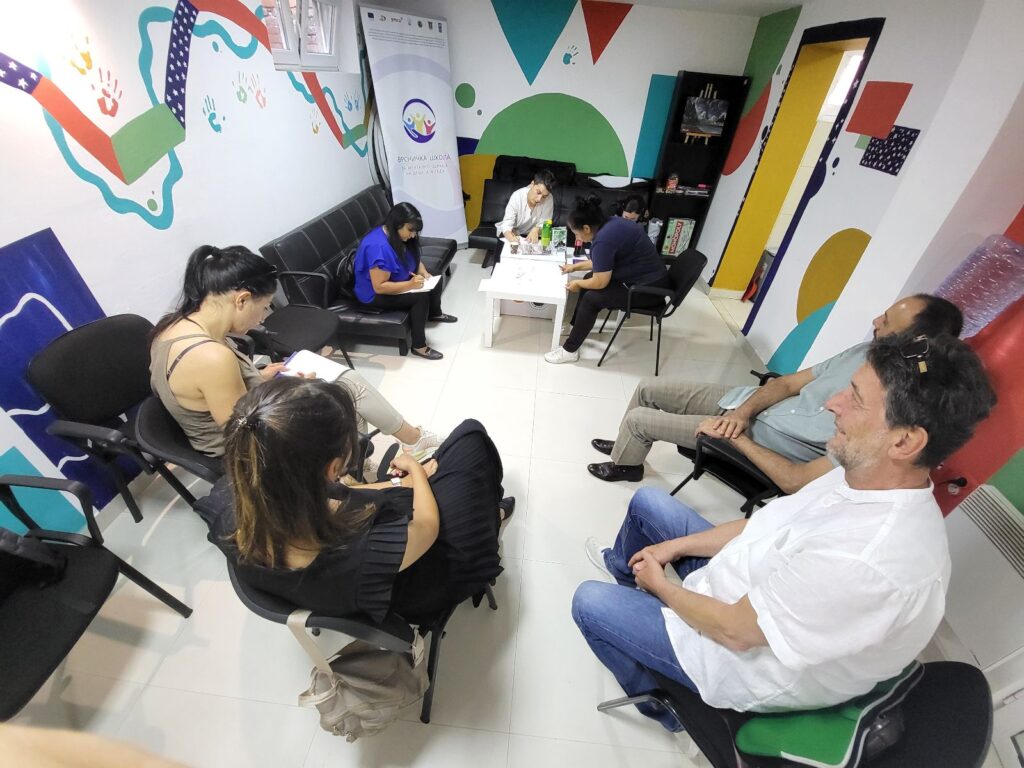
Latest News Participants’ Impressions from the mental health support groups Biljana StefanovskaAs a participant in the support group for parents of children with disabilities at the beginning we talked about the problems we face in our daily lives, something that was a familiar story to all of us, but over time it turned into mutual support and we started to we help each other, together fighting the barriers of the system in which we live. Seeing the group made up only of mothers of children with disabilities who are fighting for the welfare of the children my desire in the future together with the help of other participants and collaborators to encourage the fathers of these children to participate in such support groups is with the aim together to overcome the barriers and stereotypes surrounding the adaptation and acceptance of our children in the place where we live and to feel that this struggle is shared. Biljana StojanovskaAt the very beginning of the support groups, I had one thought going through my head, and that was that these would be like any other project we have been involved in, for the sake of order to go through the process or to have some background. However, over time I was very positively surprised by how we were accepted, allowing us to share our problems, and for which we received specific directions to find the root of that problem if we could, or to learn to solve it with appropriate techniques, master or reduce the difficulty of our problem. The group, the members, the collaborators made us feel special as individuals, and not only as parents of children with special needs. In the future, I would like to involve the whole family in this project, i.e. the fathers, as well as the brothers and sisters of the children with special needs, and together we can overcome the problems that occupy us every day. Jasmina GelevskaThis year, for the first time, I joined a support group for parents who have children with disabilities. It was a wonderful experience from which we became more positive people, we received a lot of support, advice, and courage and realized that we are worth more and worth fighting for. All participants have become like one family and our association will continue in the future. We have created a strong bond with the help of the professionals and we are grateful to them for that. I invite all people who are facing this kind of problem not to hesitate and get involved in such groups because together it is easier and we can do anything. My motto: We have no choice to choose, we must fight for ourselves and our loved ones. Bojana ArtinovskaI didn’t know what to expect, it’s my first experience with psychologists. I just knew I had to face my truth. Fortunately, I quickly gained confidence and felt safe in the group. I was able to face more fears and learned to share and at the same time be there for other members of the group ie. to listen. I learned a lot about mental health through theoretical lectures, but the experiential Gestalt exercises helped me to find answers very quickly and opened the possibility for further work with myself. The biggest benefit I think is that I learned to consciously approach problems, knowing that there is a solution, I just have to look at it from a different perspective. Recognizing a problem helps me personally, but also the feeling of support and compassion in me is now more pronounced when I see it in another. I encourage anyone who finds himself or herself in this predicament to join if they can. I think accepting help is one of the hardest things we all have to learn. This was a wonderful experience for me and I am infinitely grateful.